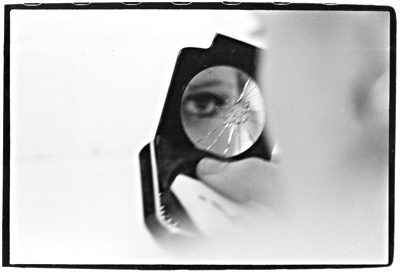All Nonfiction
- Bullying
- Books
- Academic
- Author Interviews
- Celebrity interviews
- College Articles
- College Essays
- Educator of the Year
- Heroes
- Interviews
- Memoir
- Personal Experience
- Sports
- Travel & Culture
All Opinions
- Bullying
- Current Events / Politics
- Discrimination
- Drugs / Alcohol / Smoking
- Entertainment / Celebrities
- Environment
- Love / Relationships
- Movies / Music / TV
- Pop Culture / Trends
- School / College
- Social Issues / Civics
- Spirituality / Religion
- Sports / Hobbies
All Hot Topics
- Bullying
- Community Service
- Environment
- Health
- Letters to the Editor
- Pride & Prejudice
- What Matters
- Back
Summer Guide
- Program Links
- Program Reviews
- Back
College Guide
- College Links
- College Reviews
- College Essays
- College Articles
- Back
Harry Potter a Villian?
There is not a distinct line between good and evil. J.K. Rowling makes a point of stating this fact over and over in her books, The Harry Potter Series. Along with the other, more obvious, villains such as Voldemort and Malfoy, Rowling’s inspiring hero, Harry Potter, can also be understood as a villain. As a baby Harry was cursed by the Dark Lord, and miraculously, survived. From the age of one, he was stripped of a loving family, and now hosts a piece of Lord Voldemort in his own soul. Harry Potter’s villainy is manifest through isolation. Martin Luther once said that sin is when we curve in on ourselves, (homo incurvatus in se). Isolation came in the form of a lightning bolt scar; it sounded like Voldemort’s whispers that Harry heard in his own head, and it felt like the pressure of the Prophecy, that ensured his future and his death.
The scar, given to Harry when he was a baby, forever reminds Voldemort, Harry, and every witch and wizard that he has survived, but is also cursed. Harry is recognized solely by his mark, because no one has survived Voldemort’s curses, and yet, Harry lives. This puts Harry on an uncomfortable pedestal that keeps him from being like everyone else. Separated and touched by a greater power, Harry parallels Cain in the Old Testament. In Genesis 4:12, God gives Cain a curse that ironically spares his life. “You will be a restless wanderer on the earth.” Only Cain and Harry’s heads were scarred, but the unbearable knowledge of being alone stained their whole body: “My punishment is too much for me to bear.”
The form of Harry’s solitude was not only the burning scar that showed the magical world that Harry was different, but also the thoughts that lingered in the deepest shadows of his mind. Lord Voldemort and Harry share an unnerving amount of things in common. Despite how hard and how desperately Harry tries to justify himself as a worthy, Gryffindor wizard, he cannot escape the bond with Lord Voldemort. Throughout the series, various characters point out how very similar Harry and Tom Riddle, the childhood Voldemort, are. Harry always answers with agitation and forcefulness, as if he needs to convince himself that he is absolutely nothing like Voldemort. Once Harry starts to seclude himself from everything outside his mind, he proves how unconvinced he is that he is any better than the most powerful and darkest wizard of all time. In the fifth book especially, The Order of the Phoenix, Harry searches for a way to be a hero, only to be deeply fascinated and curious about the thoughts and emotions he shares with Voldemort. Hermione begs Harry to practice Occulmency so he will stop having the dreams, that Harry knows to be Voldemort’s own thoughts, but Harry refuses; he likes having a direct line to a powerful wizard. In his opinion, it makes him more important and more useful than everyone else. Purposely, Harry creates a thick barrier between his friends and himself and simultaneously fades the feeble line between Voldemort and Voldemort’s last, unintentional horcrux.
“Either must die at the hand of the other for neither can live while the other survives” (Rowling, 841). These words lay heavily on Harry long after he hears them in Dumbledore’s office in The Order of the Phoenix. As the Prophecy says, Voldemort has marked his equal, sealing for his chosen a certain death or a near impossible victory over evil. Harry knows that the only hope of killing Voldemort is himself. Harry’s friends are willing to help Harry, but he is determined to be the scapegoat. Harry feels that by including Ron or Hermione, he is endangering them. Ultimately, he concludes that he was the chosen one and that no one should die protecting a lamb in line at the slaughter. What Harry failed to see, was that people were fighting and dying for rights and freedom, not solely for Harry. The selfless idea never occurred to Harry, who was so wrapped up in his identity as the “chosen one” who must fulfill the Prophecy.
Every time Harry became more villainous, was whenever he was alone. Whether it was forcefully when Voldemort killed Harry’s parents and gave him the scar, intentionally when Harry wanted to share Voldemort’s thoughts, or inevitably when a prophecy was told, singling out Harry. In the end, what differentiated Harry from the commonly thought villain, Voldemort, was Harry’s friends, who showed him how to love. Isolated from them, however, Harry becomes no different than a young Tom Riddle.

Similar Articles
JOIN THE DISCUSSION
This article has 1 comment.
